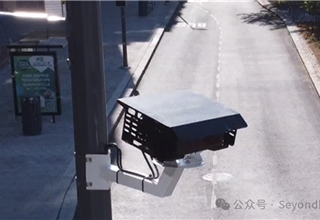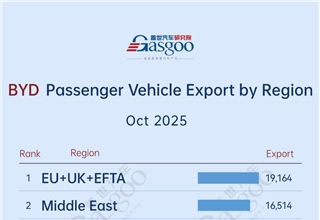Reuters (Toronto) - The Canadian Auto Workers union said on Monday it believed a framework contract agreement with Ford Motor Co was imminent, an outcome that would avert a labor stoppage at the automaker's Canadian plants as a midnight strike deadline nears.
The union was also in negotiations with the other two Detroit car companies, Fiat SpA's Chrysler Group LLC and General Motors Co, but was focusing on reaching a framework deal with Ford, which it has picked as the lead company for contract talks.
After what he said was a long night of talks and progress early on Monday, CAW President Ken Lewenza told reporters a deal would likely come well ahead of the midnight deadline.
"Talks are going very well, very constructive, very positive. It's very clear that they want to get an agreement," he said of the Ford negotiating team.
"It's very clear that the differences over the last 24 hours have been narrowed and it's very very clear, if we can dot the I's and cross the T's, we will have a tentative agreement at Ford Motor Co within hours if not minutes," Lewenza said.
With different negotiating teams holed up at a downtown Toronto hotel and many details to be ironed out, a tentative agreement is unlikely to be in place before late afternoon, Lewenza said later.
Ford's lead negotiator, Stacey Allerton, also seemed cautiously optimistic. "I'm encouraged by the progress," Allerton told reporters.
The union, which represents about 20,000 workers at the Detroit Three automakers, chose Ford on Sunday to set the pattern for the new contract, saying it has been most receptive to a CAW proposal to cut labor costs. The main issue is the industry's insistence that the CAW accept a permanent two-tier wage scale for new hires and veteran workers.
Without a tentative agreement before the strike deadline of 11:59 p.m. on Monday (0359 GMT, Tuesday), the union said it could stop work at one or all three automakers.
CAW National Secretary-Treasurer Peter Kennedy said talks were also continuing with Chrysler and GM, noting that the tone was a little more positive with GM.
"We're still running the race - we can't see the finish line at either General Motors or Chrysler, but I guess we're a little further around the track with GM than we are at Chrysler."
Dino Chiodo, president of CAW local 444, however, said progress with Ford had lit a fire under the Chrysler negotiations.
"Chrysler understands what Ford is doing and Chrysler has seen some of the economic documents that are important in order for us to get there. So now they have to dissect those documents," Chiodo told reporters on the sidelines of the talks.
"As we get closer to the date or Ford finalizes - because I don't see us moving in front of Ford at this point because Ford is that much further ahead of us - we'll have to take a step back and determine how we proceed."
If the union reaches an agreement with Ford by the deadline, it has said it will require a firm commitment from GM and Chrysler that they could work within that deal framework to avoid a strike at those two companies.
Labor costs have been the key sticking point in negotiations, which started last month.
All three automakers - with Chrysler the most publicly outspoken - have argued adamantly that Canadian labor costs are the highest in the world and must drop to match those of the United Auto Workers in the United States, or future production and investment in Canada will be jeopardized.
CAW workers at the Detroit Three earn an average of $34 in a base hourly wage, compared with an average $28 for UAW employees, the CAW says.
Including benefits such as pensions, health care and overtime pay, the CAW's total average labor cost is about $60 an hour, according to the Center for Automotive Research in Ann Arbor, Michigan. That compares with $58 for U.S. workers at Ford, $56 for GM and about $52 at Chrysler.
The CAW, seeing that the automakers are again generating profits, wants some payback for the concessions its members made during the 2008-09 financial crisis.
The Detroit Three and UAW have used a two-tier wage scale for the past several years to bring labor costs closer to those of foreign automakers.
The CAW is adamant that its new workers, who start at 70 percent of veteran workers' wages, must over time reach the same pay scales as existing workers. In the United States, they do not.
It has proposed a lower starting wage as well as an extended "earn-in," the time it takes new hires to reach the highest end of the pay scale, from the current six years to 10 years.
A strike at all three companies would result in lost production of about C$200 million ($206.2 million) a day at the companies and their suppliers, according to the CAW.









